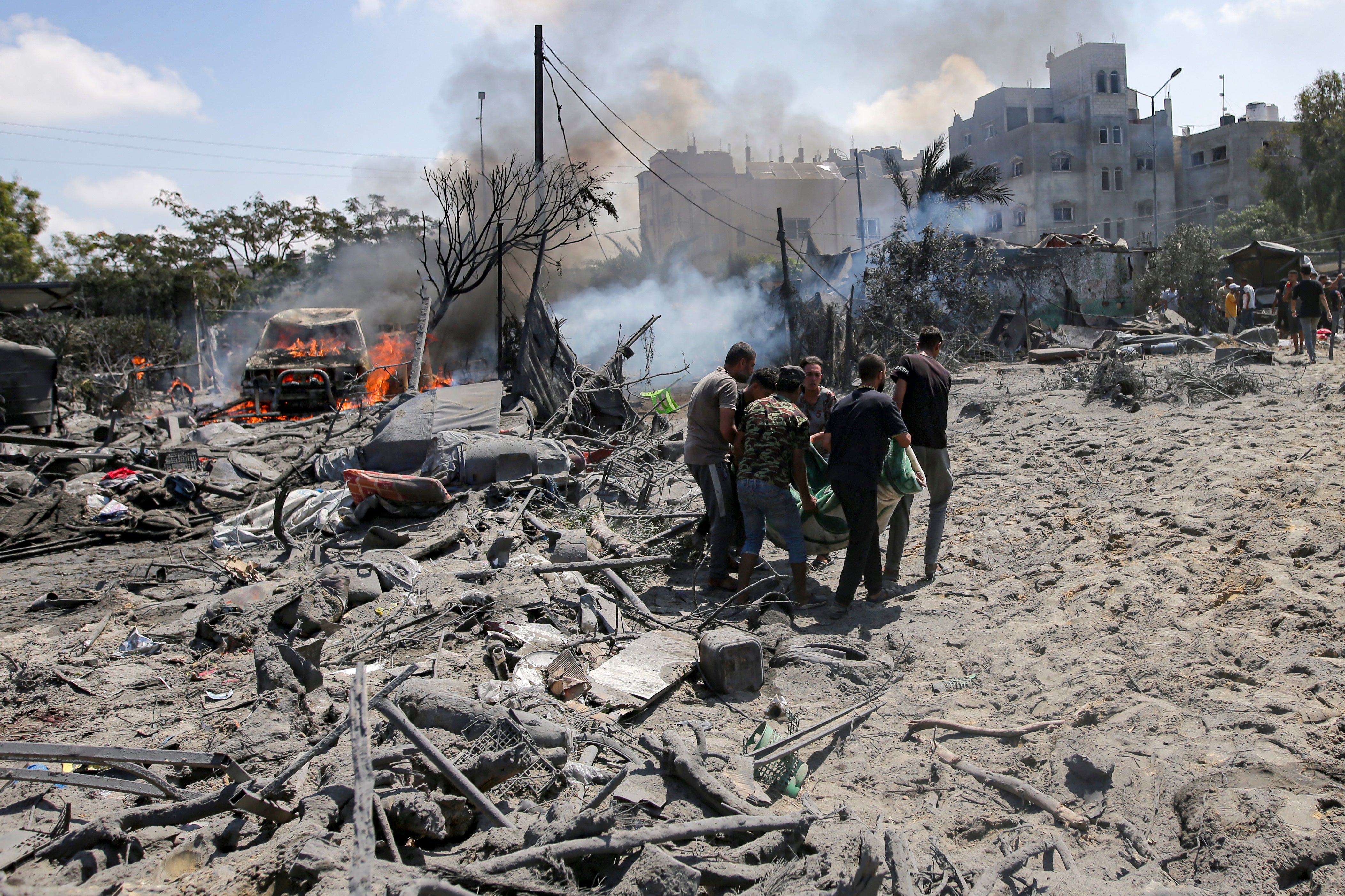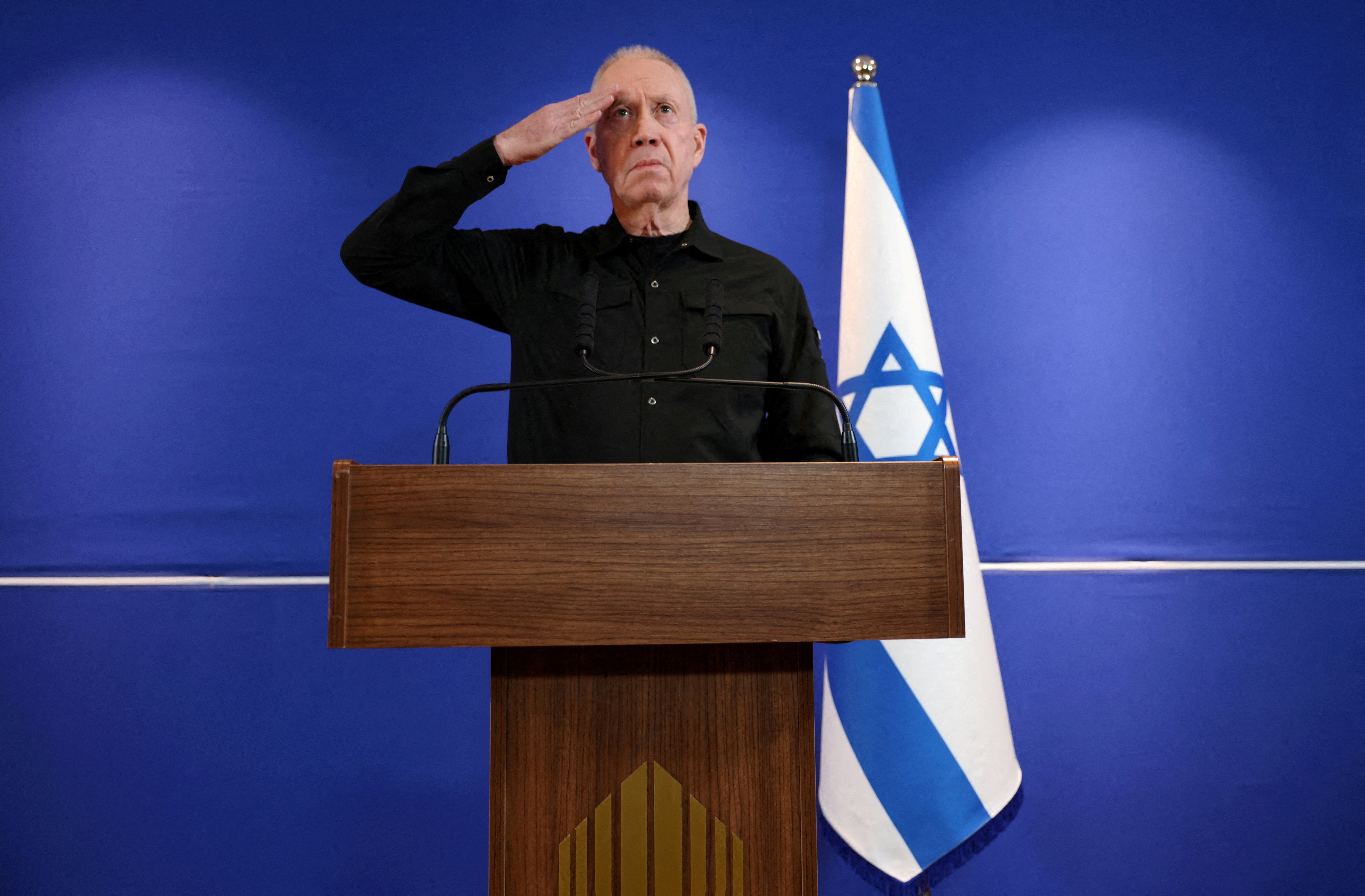Qatar pulls out as broker of key Gaza ceasefire talks
The Gulf state said it had pulled out until Hamas and Israel showed a ‘sincere willingness’ to negotiate

Your support helps us to tell the story
From reproductive rights to climate change to Big Tech, The Independent is on the ground when the story is developing. Whether it's investigating the financials of Elon Musk's pro-Trump PAC or producing our latest documentary, 'The A Word', which shines a light on the American women fighting for reproductive rights, we know how important it is to parse out the facts from the messaging.
At such a critical moment in US history, we need reporters on the ground. Your donation allows us to keep sending journalists to speak to both sides of the story.
The Independent is trusted by Americans across the entire political spectrum. And unlike many other quality news outlets, we choose not to lock Americans out of our reporting and analysis with paywalls. We believe quality journalism should be available to everyone, paid for by those who can afford it.
Your support makes all the difference.Qatar has pulled out as a broker of key ceasefire talks between Israel and Hamas in a further blow to peace throughout the region.
The Gulf state said it would stop mediating a truce and hostage release deal until both sides showed a “sincere willingness” to return to the negotiating table.
Qatar, alongside the United States and Egypt, has played a major role in rounds of so-far unsuccessful talks to end the year-long war in Gaza.
It comes after Qatari officials agreed with Washington it would order Hamas to close its political office in Doha, according to US officials.
Although Qatar has not confirmed this, it said Hamas’s base “no longer served its purpose” due to “a refusal to negotiate a deal in good faith”. Hamas denied the claim.

The latest round of talks in mid-October failed to produce a deal, with Hamas rejecting a short-term ceasefire proposal.
The group has called for a complete end to the conflict and the full withdrawal of Israeli troops from Gaza.
Former Israeli defence minister Yoav Gallant accused Israeli prime minister Benjamin Netanyahu of rejecting a peace deal against the advice of his security chiefs.
Qatar, designated as a major non-Nato ally by Washington, has hosted Hamas’s political leaders since 2012 as part of an agreement under former US president Barack Obama.
The call for Hamas to be expelled from Qatar could be an attempt by the outgoing Biden administration to force some sort of peace deal before the end of his term in January, according to some analysts.

Scott Richards, a private negotiator working on behalf of Israeli hostages, told The Independent: “This may be a political move as there are few other venues suitable for Hamas, with the exception of Cairo.
“If they left for Iran, it would make the talks impossible due to tensions between Iran and Israel, as well as that being the site of former Hamas leader Ismail Haniyeh’s assassination by Israel.
“If Hamas are forced to leave Qatar where they are beyond Netanyahu’s reach, they may offer a better deal or accept a shorter ceasefire rather than face the risks that come with the alternatives.”
It is thought the personal safety of Hamas leadership is now a major concern for the group, which saw two leaders killed in less than four months.
As well as Haniyeh’s death in July, in October Israel killed Yahya Sinwar, the mastermind behind the 7 October Hamas attack on southern Israel.
H A Hellyer, a senior associate fellow at the Royal United Services Institute think tank , told the BBC nowhere “would give them protection from Israeli assassination attempts in the same way that being in Doha did”.
Join our commenting forum
Join thought-provoking conversations, follow other Independent readers and see their replies
Comments